If you were offered a job packaging and labeling products for a major company, how much would you expect to be paid?
For two years, Greg Tucker did just that, getting paid $2.50 an hour.
It was completely legal.
What is the reason? Mr. Tucker lives with an intellectual disability.
“Halfway through, I thought, ‘This can never happen,’” he said.
“We all work hard and yet we still only make single-digit incomes.”
Mr Tucker was employed by Australian Disability Enterprise (ADE). ADE is a segregated workplace for people with disabilities who require sufficient support to work.
“Supported employees” working at ADE can legally be paid less than the minimum wage if it is determined that their production will be reduced due to their disability.
By the end of several weeks, Mr. Tucker’s salary could only buy snacks and public transportation trips.
“It wasn’t even enough to pay one bill,” he said.
Mr. Tucker has now moved on to a cleaning job at the same ADE, where he has received two pay increases.
But at about $11 an hour, it’s still well below the minimum wage of $24.10 an hour.
He found a second, undisclosed job as a housing support worker for a disability organization, making $33.41 an hour.
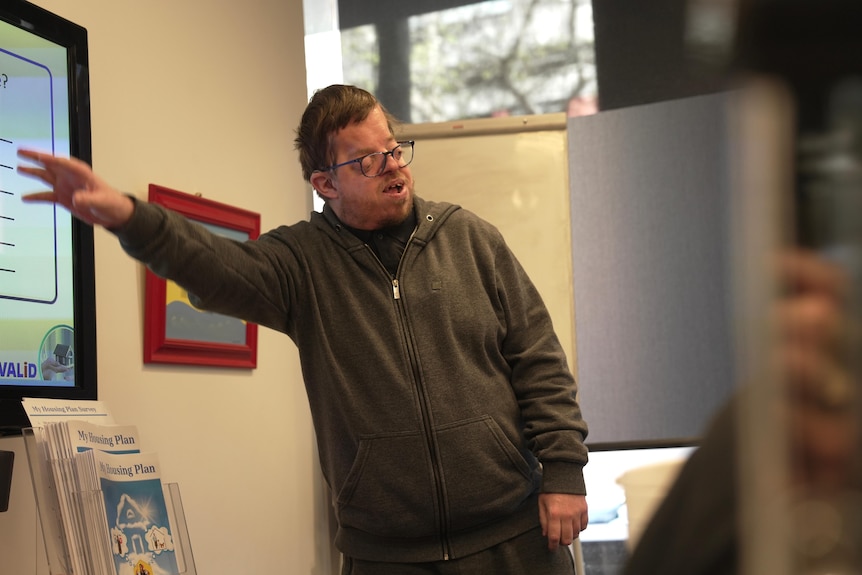
Greg Tucker also now works for a disability advocacy organization, where he receives a much higher salary. (ABC News: Patrick Stone)
Mr. Tucker said it was “absolutely not right” to pay such low wages to ADE’s employees.
“They’re human beings too, and they just want to work and make money for their families,” he says.
“An insult to dignity”
Originally known as “sheltered workshops,” ADE was started in the 1950s by parents who wanted to provide some form of employment for their children.
Currently, approximately 20,000 people with disabilities work in approximately 600 ADEs across the country.
The company came under the microscope at the Disability Royal Commission, and Mr Tucker shared his story in 2022.
Loading…
The final report of the investigation was handed down one year ago today.
Four out of six Royal Commissioners recommended that ADE be transformed and subminimum wages for disabled people abolished by 2034.
One of these commissioners, Alistair McEwin, said the evidence presented at the inquiry painted a “shameful picture” of ADE.
“What we saw and heard… was a very clear case for change. ADE needs to close. ADE needs to stop paying sub-minimum wage,” he said.
”[The conditions are] It is an affront to dignity and violates fundamental principles of human rights. ”
The Royal Commission heard evidence that there were high rates of violence, abuse, neglect and exploitation in all segregated settings, not just employment.
In its formal response to the inquiry in July, the federal government said its recommendation to phase out discriminatory hiring required further consideration.
Mr McEwin called on the government to act on the commission’s recommendations.
“Segregation is harmful. It’s based on othering. It’s based on dehumanization. It’s based on treating people with disabilities as second-class citizens,” he said.
“Unless we change policies to address that, we won’t be able to achieve equality for a long time.”
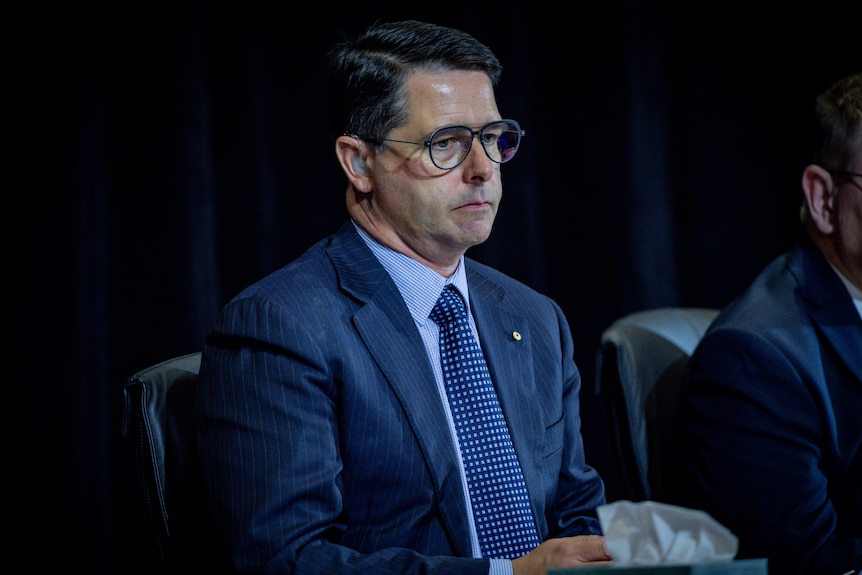
Alistair McEwin strongly believes that discriminatory employment needs to be phased out. (ABC News: Brendan Esposito)
Social Services Minister Amanda Rishworth said in a statement that the government is “committed to supporting the fullest participation of all people with disabilities in society.”
He said the government had launched a range of initiatives to improve employment for disabled people, including those announced in May’s federal budget, and that the Royal Commission’s recommendations were “an approach for further consultation”. It is under development.”
”[We] “We will continue to engage with the disability sector, including people with disabilities, their families and carers, supported employment services, mainstream employers, advocates and peak organizations on these initiatives,” she said.
Mr McEwin said it was good to see some movement on the issue, but it needed to be done faster.
“Even though it’s 2024, many people with disabilities are still being told, “You have to accept this situation,” and “There’s nothing else you want…” even though they know it’s wrong. Even though I’m there.”
Looking to the future
In a spacious warehouse in Seymour, 100km north of Melbourne, Davis Stokes labels, wraps and packs products using the forklift he learned to drive five years ago.
“I was a little nervous, but now I feel confident that I can load and unload trucks and do whatever I need to do,” Stokes said.
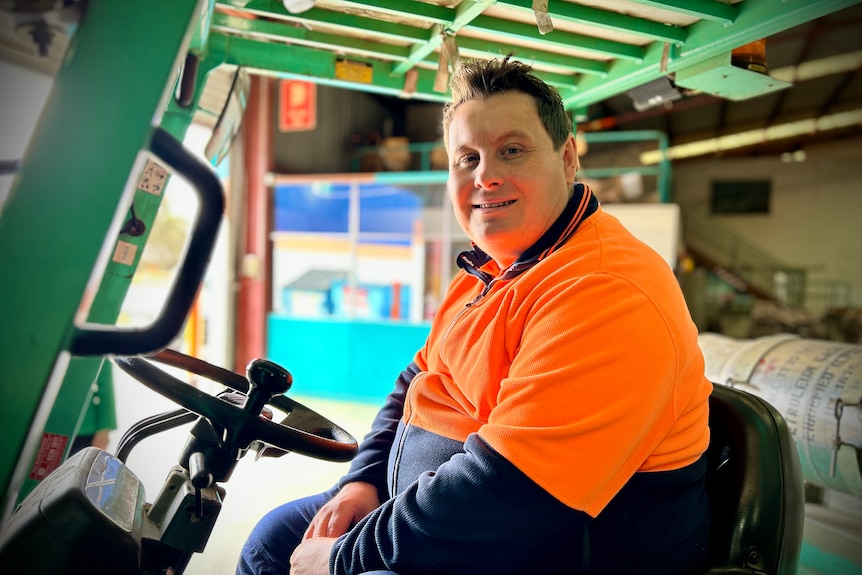
Davis Stokes has worked at Yoorala for more than 10 years. (ABC News: Loretta Florence)
The 37-year-old has an intellectual disability and has been working at ADE, run by disability services provider Yooralla, for 14 years.
The not-for-profit organization opened its first ADE more than 30 years ago and now has 140 people working across four facilities in Victoria.
Mr Stokes works in Yorala twice a week.
Depending on the day, you may be packing products for shipping or working as a gardener. In doing so, he receives what he calls his “base” wage.
You can also earn higher wages on days when you perform maintenance work at the station, such as cleaning platforms or testing PA systems.
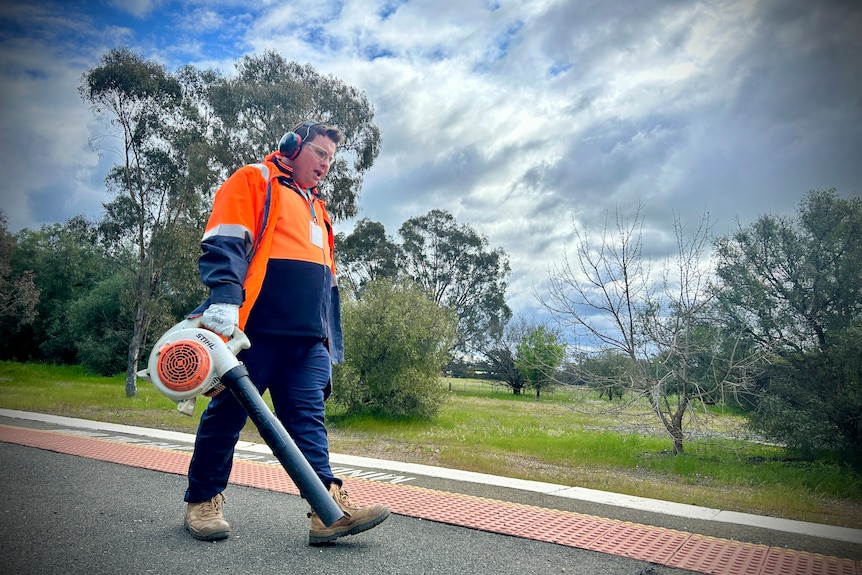
Davis-Stokes is paid a higher wage when he works outside at the station. (ABC News: Loretta Florence)
Yorala CEO Terry Simmons acknowledged that ADE workers were underpaid and said the organization was committed to gradually increasing wages to “at least” the minimum wage.
Simmons said Yorala cannot immediately make the transition all at once for a variety of reasons, including budget constraints and existing contracts.
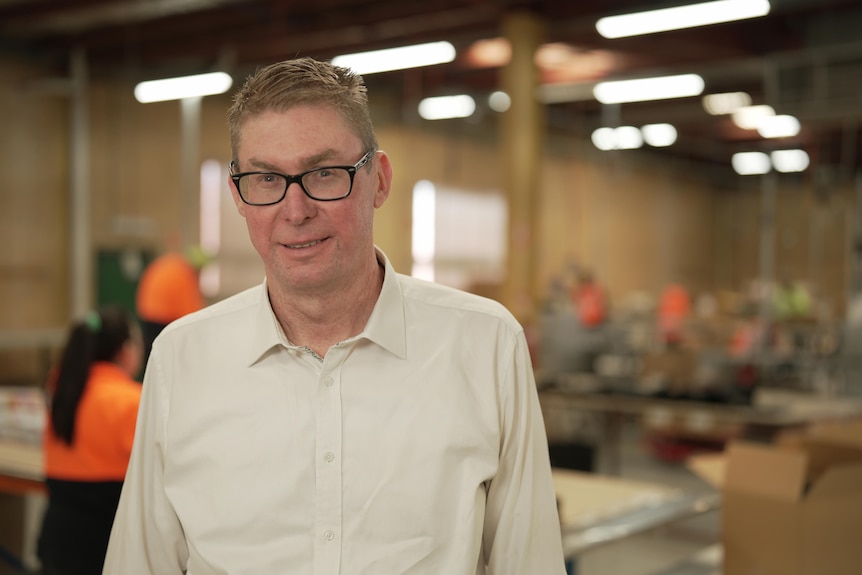
Terry Simmons admits change is needed, but says it needs to happen in stages. (ABC News: Patrick Stone)
“That’s great, but [we] They are making super profits that they have been able to reinvest into the business in the form of wages, while we are not making any profits…and we are determined that no one will lose their jobs. ” he said.
“We have existing contracts with other organizations, but they are quoted on bare wages and they have no contracts. [higher prices]. ”
“It makes me feel important.”
However, not everyone working in an isolated environment is unhappy.
Many have worked at ADE for decades, and the connections and familiarity of going to the same places and doing the same work are helpful.
Mr. Stokes now has a leadership role at ADE and is thrilled to know that his colleagues respect him.
“It makes me feel important… [coming to work] “It gives me something to do every day,” he said.
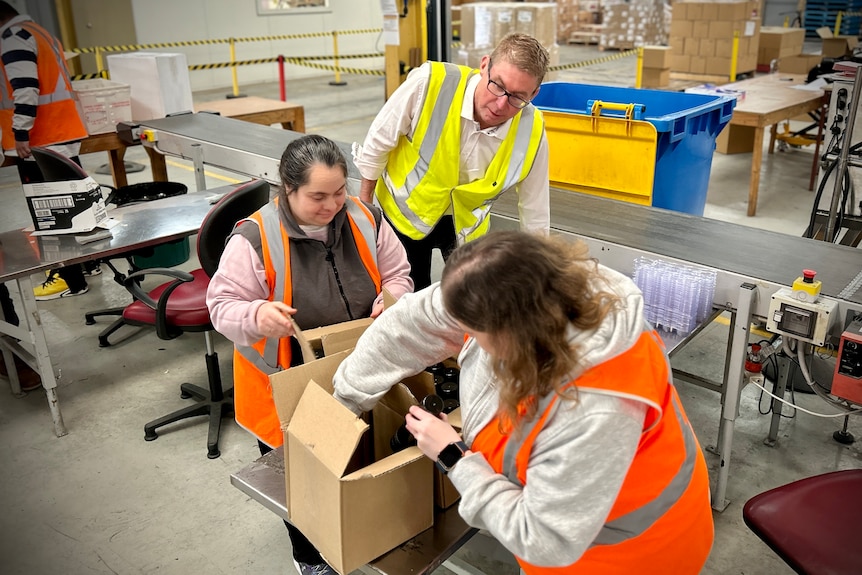
Terry Simmons said some employees have no interest in working elsewhere. (ABC News: Loretta Florence)
Mr Symonds welcomed the royal commission’s “ambitious” recommendations for change, but said ADE could not be shut down overnight.
“Some [our workers] “I wouldn’t want to work anywhere else,” he said.
“For some of them, this is a safe place, but open employment may not be safe because they may be exposed to discrimination.”
Simmons said ADE exists because the economy as a whole does not provide opportunities for people with disabilities.
“My hope is that as mainstream workplaces and employers become more supportive, ADEs and segregated workplaces will play an increasingly smaller role,” he said.
Yoorala hired job coaches to help find and place employees into open jobs that pay more.
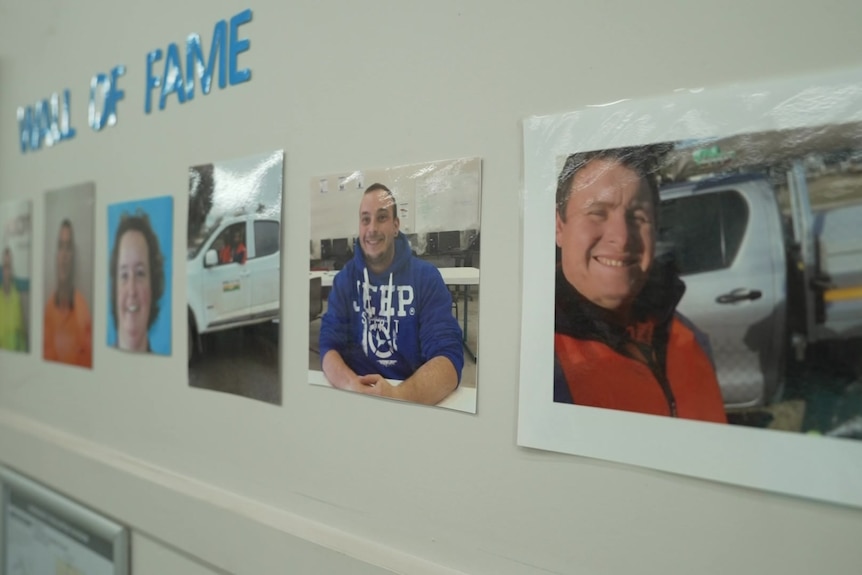
Davis Stokes is part of Yoorala Seymour’s Wall of Fame, which is made up of employees who have gone on to open employment. (ABC News: Patrick Stone)
The Wall of Fame, located in a corner of Seymour’s warehouse, displays photos of workers like Stokes who were determined to find employment.
For him, having this job means more than money, he said, but at the end of the day, those who work at ADE should be paid more.
“They’re doing the same job as everyone else, so they should be paid the same,” he says.
Loading…
#system #pays #people #disabilities #hour